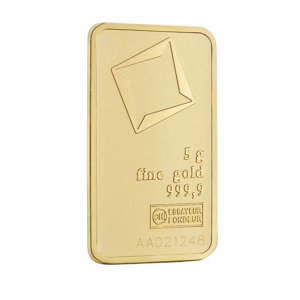Tavex uses cookies to ensure website functionality and improve your user experience. Collecting data from cookies helps us provide the best experience for you, keeps your account secure and allows us to personalise advert content. You can find out more in our cookie policy.
Please select what cookies you allow us to use
Cookies are small files of letters and digits downloaded and saved on your computer or another device (for instance, a mobile phone, a tablet) and saved in your browser while you visit a website. They can be used to track the pages you visit on the website, save the information you enter or remember your preferences such as language settings as long as you’re browsing the website.
| Cookie name | Cookie description | Cookie duration |
|---|---|---|
| tavex_cookie_consent | Stores cookie consent options selected | 60 weeks |
| tavex_customer | Tavex customer ID | 30 days |
| wp-wpml_current_language | Stores selected language | 1 day |
| AWSALB | AWS ALB sticky session cookie | 6 days |
| AWSALBCORS | AWS ALB sticky session cookie | 6 days |
| NO_CACHE | Used to disable page caching | 1 day |
| PHPSESSID | Identifier for PHP session | Session |
| latest_news | Helps to keep notifications relevant by storing the latest news shown | 29 days |
| latest_news_flash | Helps to keep notifications relevant by storing the latest news shown | 29 days |
| tavex_recently_viewed_products | List of recently viewed products | 1 day |
| tavex_compare_amount | Number of items in product comparison view | 1 day |
| Cookie name | Cookie description | Cookie duration |
|---|---|---|
| chart-widget-tab-*-*-* | Remembers last chart options (i.e currency, time period, etc) | 29 days |
| archive_layout | Stores selected product layout on category pages | 1 day |
| Cookie name | Cookie description | Cookie duration |
|---|---|---|
| cartstack.com-* | Used for tracking abandoned shopping carts | 1 year |
| _omappvp | Used by OptinMonster for determining new vs. returning visitors. Expires in 11 years | 11 years |
| _omappvs | Used by OptinMonster for determining when a new visitor becomes a returning visitor | Session |
| om* | Used by OptinMonster to track interactions with campaigns | Persistent |
| Cookie name | Cookie description | Cookie duration |
|---|---|---|
| _ga | Used to distinguish users | 2 years |
| _gid | Used to distinguish users | 24 hours |
| _ga_* | Used to persist session state | 2 years |
| _gac_* | Contains campaign related information | 90 days |
| _gat_gtag_* | Used to throttle request rate | 1 minute |
| _fbc | Facebook advertisement cookie | 2 years |
| _fbp | Facebook cookie for distinguishing unique users | 2 years |
Bitcoin vs. Gold: The Driving Forces Behind Their Prices

Bitcoin has often been dubbed “digital gold” by enthusiasts, and its enigmatic creator, Satoshi Nakamoto, has indeed infused it with characteristics reminiscent of gold. Notably, Bitcoin’s total supply is capped at 21 million coins, mirroring the finite quantity of gold. Moreover, Bitcoin offers the advantage of infinite divisibility, allowing for transactions of even the smallest fractions. Similar to gold, Bitcoin enjoys a vibrant trading presence across various markets, including futures trading.
Like gold, Bitcoin emerged as a novel alternative to traditional fiat currencies. However, its current behaviour deviates significantly from its original conceptualisation, standing apart not only from traditional currencies but also from gold itself.
In this discussion, we will delve into the recent factors influencing the prices of both Bitcoin and gold, aiming to shed light on the broader debate regarding which asset is currently viewed as a more reliable store of value.
Factors Influencing Bitcoins Price Dynamics

Bitcoin: A speculative asset vs a currency
Currently, cryptocurrency primarily functions as a speculative investment rather than a frequently used medium for transactions. This trend is evident from transaction volume data.
Over the past seven years, there’s been a roughly fivefold increase in the average daily number of transactions. However, several key points merit attention. Firstly, since mid-2019, the volume of transactions has been on a decline. This trend inversely correlates with Bitcoin’s price; as its value escalates, its use as a medium of exchange diminishes. Essentially, Bitcoin is increasingly viewed as a speculative investment rather than as traditional “money.”
Under the assumption that Bitcoin serves as a currency, one would expect transaction volumes to rise in tandem with its price and, consequently, its market capitalisation. A pricier asset, if viable as a payment method, should theoretically facilitate the purchase of more goods. Despite a growing acceptance of Bitcoin payments by various businesses over the years, transaction volumes have decreased, especially at the peak of Bitcoin’s value.
Simultaneously, Bitcoin fails to satisfy the economic criteria for being considered money on the stock market, defined as a “universal medium of exchange.” Regardless of one’s stance on cryptocurrency, it is unmistakably evident that Bitcoin is currently far removed from achieving this status. As highlighted in the preceding discussion of the Bitcoin vs. Gold series, it is more probable that central banks would attempt to prohibit cryptocurrency rather than permit it to attain such a designation.
Volatility as an Unintended Characteristic
Volatility in Bitcoin is not an intentionally designed feature, unlike with fiat currencies. However, due to its current speculative nature, Bitcoin experiences sharp and unpredictable price movements, often swinging widely in both directions.
In contrast to many assets, including gold, Bitcoin’s price can significantly fluctuate based on comments made by public figures on social media platforms in the short term. A prime example of this sensitivity to public discourse is the impact of Elon Musk’s statements on the cryptocurrency. Particularly since the start of 2021, his remarks have shown a profound ability to influence Bitcoin’s value.
Notably, in the past month alone, Musk’s comments have repeatedly exerted a negative effect on Bitcoin’s price.
This leads us to a critical issue: if the mere utterance of a few ill-advised words by an entrepreneur on Twitter can precipitate a 30% fluctuation in an asset’s value, then the bottom line is that it is inherently unsuitable as a stable store of value. The excessive volatility of Bitcoin undermines its reliability for long-term investment. In contrast, the price of gold remains impervious to the influence of individual market players’ social media commentary. Yet, since reaching its price apex, Bitcoin has experienced even more dramatic downturns, with losses reaching 50%.
Elon Musk is not the sole figure whose public statements have significantly impacted Bitcoin’s valuation. After Tesla’s initial endorsement of Bitcoin through purchase and acceptance as payment — actions that significantly boosted the crypto asset’s value — Musk announced the company’s withdrawal from Bitcoin. This decision contributed to its value decline. Additionally, “whales” — investors holding over 1 million bitcoins — have been offloading their stakes, further driving the price down. According to data from analytics firm Glassnode, since February of this year, when Bitcoin first surpassed $41,000, there has been a notable sell-off by these large holders.
Consequently, Bitcoin’s price fluctuations bear a resemblance to a “pump-and-dump” scheme. While cryptocurrency is not designed with this intention, the outcome speaks for itself, highlighting the challenges in perceiving Bitcoin as a dependable financial asset.
The Widespread Institutional Skepticism Towards Bitcoin
The recent downturn in Bitcoin’s price cannot solely be attributed to the actions of whales and Elon Musk’s influential tweets. Decisions within the political arena have also played a significant role.
A pivotal event was China’s prohibition of digital currency transactions and handling, enacted in mid-May. This policy change alone precipitated a 12% drop in Bitcoin’s value in a single day. Following this, China intensified its crackdown on Bitcoin mining and trading activities, even incorporating illegal cryptocurrency transactions into its criminal code.
However, China is not alone in its aversion to cryptocurrencies. Several banks in the Middle East have implemented restrictions on cryptocurrency trading and operations. Meanwhile, in the developed world, financial institutions and regulators are adopting a more cautious stance, opting to observe how the situation unfolds. Political risks associated with cryptocurrencies were also a focal point in a previous discussion.
Bitcoin and Its Relationship with Inflation
The speculative essence of Bitcoin is further highlighted by its disconnect from the anticipated depreciation of fiat currencies. Despite current consumer inflation expectations reaching a multi-year peak, Bitcoin’s price has notably been on the decline.
Should cryptocurrency be regarded as a safeguard for preserving purchasing power amidst inflation, rather than a vehicle for speculation, a contrary trend would be anticipated.
The Drivers Behind Gold’s Ascending Value: Inflation Expectations vs. Actual Inflation

The primary catalyst behind the rising price of gold is not the “real inflation” as captured by the consumer price index (CPI), but rather the expectations of inflation. Several factors contribute to this phenomenon, including the manipulation of the definitions of “inflation” to facilitate the continuation of central bankers’ monetary policies.
Consequently, the consumer price index has a weak linkage to the movements in gold prices, as evidenced by a mere 31.1% correlation between them. In stark contrast, the correlation between inflation expectations and gold prices soars above 85%. According to a May survey by the World Gold Council, consumer expectations for price increases in the US over the next year are nearly 5%—marking the highest anticipated inflation rate since 2012. Given these expectations, the current uptrend in rise in gold prices in dollars comes as no surprise.
Based solely on this correlation, we might anticipate a continued increase in gold bullion prices. This expectation stems from the fact that consumer predictions for price growth in 2020 were significantly lower than current projections.
Additional Influences on the Rising Price of Gold

The month of May witnessed a surge in long positions on the COMEX exchange, contributing to an uptick in the futures price of gold. Exchange data revealed that net long positions escalated to $44 billion, equivalent to 725 tons of gold, marking their peak in the past four months and representing a 50% increase from the low point in March.
Moreover, gold exchange-traded funds (ETFs) saw a rise in demand for gold, turning positive for the first time since January. Gold holdings within these ETFs expanded by 61.3 tons, valued at $3.4 billion, primarily due to acquisitions in North America and Europe, where ETFs added 34.5 and 31.2 tons of gold, respectively.
Not to be overlooked, gold demand in April and May continued to be robust in China and India, despite a contraction in the latter month due to lockdowns. China, after importing 111 tonnes of gold in April and temporarily lifting restrictions on its commercial banks’ gold imports, experienced a surge in demand during the early May holidays. According to the Shanghai Municipal Commission of Commerce, gold demand in the first week of May jumped by 30% compared to the same period in the previous year.
These developments are hardly surprising. Investing in gold has long been regarded as a bastion of purchasing power during crises, offering individuals a reliable means to safeguard their financial assets.


















